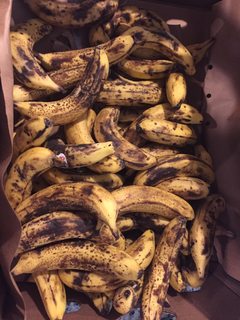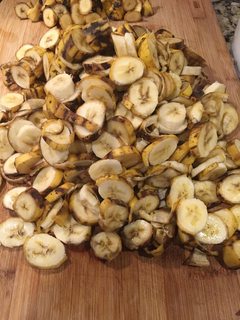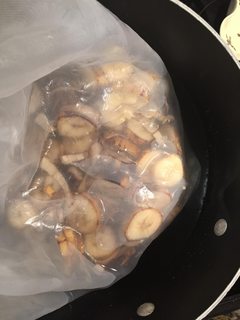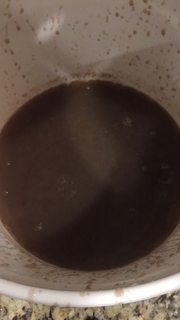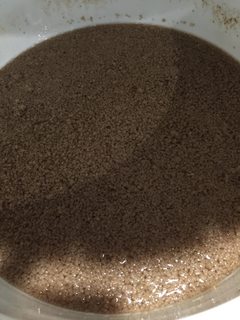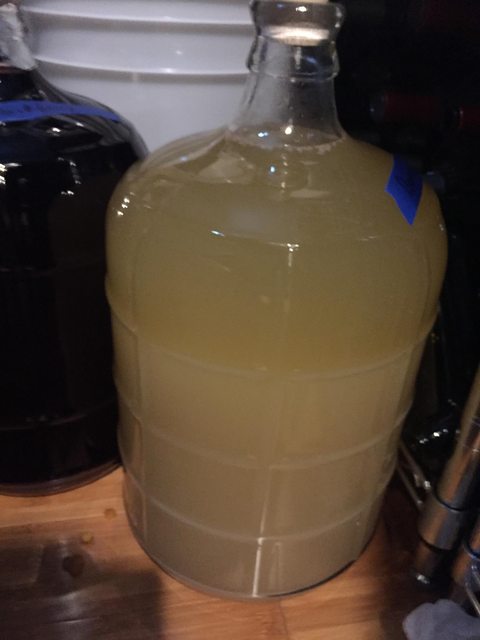raketemensch
Member
- Joined
- Oct 30, 2015
- Messages
- 11
- Reaction score
- 3
I had made a 2-gallon experimental banana batch about a month ago, which I made without peels and just blending the peeled brown bananas with some tepid water. I pitched some EC-1118 and 5 pounds of sugar and let it go.
It's pretty good, and peaked at 7.4%ABV. I wasn't going for anything full-on, I just had an empty old Mr. Beer fermenter, so I figured I'd give it a shot.
I'm going to give this recipe a shot, minus the raisins, mainly because raisins are evil, foul things that should be banned from the Earth.
The other change that I'm going to try is using WLP300 hefeweizen yeast, the one with the banana esters. I've got a vial of it coming tomorrow.
The big win here, though, was that the first store I stopped at wanted 79cents/pound for bananas, so I continued on to Stop and Shop, where they were 49cents/pound. The produce guy was stocking bananas, so just for the heck of it I asked him what they do with them when they brown up, and he directed me to a back hallway I'd never seen, where they had already-browned bananas for something like 10-15cents/lb. I loaded up on enough to do a 5-gallon ferment.
I loaded up on enough to do a 5-gallon ferment.
The one thing that seems odd to me is bringing it to a boil -- it seems like taking it above 140 might kill off any of the natural enzymes from the bananas that would help you with conversion?
It's pretty good, and peaked at 7.4%ABV. I wasn't going for anything full-on, I just had an empty old Mr. Beer fermenter, so I figured I'd give it a shot.
I'm going to give this recipe a shot, minus the raisins, mainly because raisins are evil, foul things that should be banned from the Earth.
The other change that I'm going to try is using WLP300 hefeweizen yeast, the one with the banana esters. I've got a vial of it coming tomorrow.
The big win here, though, was that the first store I stopped at wanted 79cents/pound for bananas, so I continued on to Stop and Shop, where they were 49cents/pound. The produce guy was stocking bananas, so just for the heck of it I asked him what they do with them when they brown up, and he directed me to a back hallway I'd never seen, where they had already-browned bananas for something like 10-15cents/lb.
 I loaded up on enough to do a 5-gallon ferment.
I loaded up on enough to do a 5-gallon ferment.The one thing that seems odd to me is bringing it to a boil -- it seems like taking it above 140 might kill off any of the natural enzymes from the bananas that would help you with conversion?




